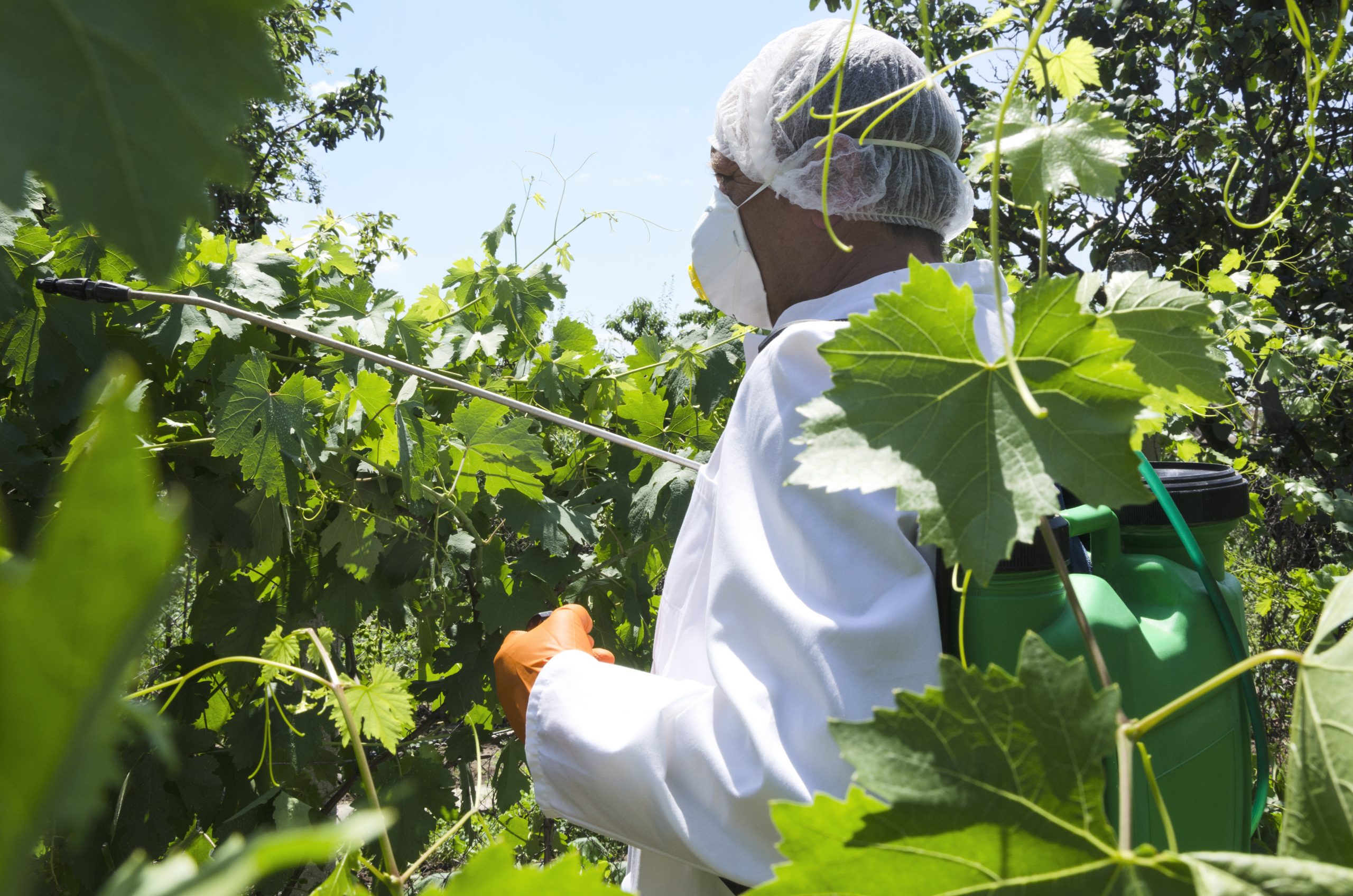Farmworker Justice Update: 08/18/2020

Third Quarter Data on the H-2A Program
The Department of Labor (DOL) recently released its 2020 third-quarter data on the H-2A program for the fiscal year, which ends September 30. The data shows that the H-2A agricultural guestworker program continues to grow. Of the 89,366 H-2A positions requested during this quarter, 86,117 were certified. A total of 224,290 H-2A positions have been certified so far for FY 2020, a 7% increase over the same period last year. The states with the most H-2A workers are Florida, Washington, Georgia, California, and North Carolina. These five states currently account for over half of all H-2A positions certified.
H-2A COVID Temporary Rule Extended Through December
On August 18, The Department of Homeland Security (DHS) extended a temporary rule that offers more leniency to growers who rely on H-2A workers. DHS had originally issued two main changes to the H-2A program in its April notice, claiming that the COVID-19 pandemic created a need for a more flexible workforce. First, the temporary rule allowed workers who were in the United States on an H-2A visa to immediately begin working for a new H-2A employer as soon as that employer has submitted a new H-2A petition. Second, the rule change allowed H-2A visa holders to extend their stay beyond the traditional three-year limitation without exiting the United States for three months, as is normally required in the H-2A program.
The temporary rule was originally set to expire on August 18, 2020, but DHS decided to extend the first amendment, allowing H-2A visa holders to immediately begin working for new growers, until December 17, 2020. DHS has not extended the second amendment.
The Trump Administration Again Tries to Undermine DACA

Despite the Supreme Court’s ruling earlier this summer that the Trump Administration’s attempt to rescind the Deferred Action for Childhood Arrivals (“DACA”) program violated the Administrative Procedures Act (“APA”), the Department of Homeland Security (“DHS”) has already taken steps to yet again remove protections for Dreamers. In a memo issued in late July, DHS stated that it will temporarily impose additional burdens on qualifying immigrants while a thorough “reconsideration” of the DACA policy is completed. Specifically, the memo shortens the DACA renewal process such that applicants must apply for renewal every year rather than once every two years as was required under the original policy. This drastically increases the cost and burden on applicants. The memo also states that the administration will “reject all pending and future initial requests for DACA,” essentially closing the door on any new applicants that would otherwise qualify for the program.
DHS’ authority to issue the memo is unclear because it was signed by Acting Secretary Chad Wolf, who is currently under scrutiny after a recent Government Accountability Office (“GAO”) decision found that he was ineligible to serve in that position. These changes also conflict with a federal court order requiring the Administration to return to the initial DACA policy and begin accepting new applications. The Trump administration’s continued attack on DACA is inconsistent with the law and out of touch with the preferences of most Americans—including a majority of Trump voters—who support Dreamers. Farmworker Justice was one of the “friends of the Court” in an amici curiae brief to the Supreme Court.
President Trump’s COVID-19 Orders Are Insufficient to Address Current Crisis
President Trump took executive action on August 8, 2020 in an attempt to curb the harm caused by the current coronavirus pandemic and the resulting economic recession. In three presidential memoranda and one executive order he directed FEMA to allocate funding for federal unemployment relief, temporarily deferred payroll tax obligations, ordered HHS and CDC to consider taking action to assist renters and homeowners, and extended student loan relief.
However, these actions do not provide the assistance desperately needed by the millions of Americans struggling to survive and pay their bills as the administration fails to contain the virus. For example, the $400 weekly unemployment payments mentioned in one of the memoranda are lower than the $600 that had already been authorized in the congressional CARES Act and expired on July 31. Additionally, the money to make these payments would come in part from state budgets—even as states struggle with their own financial crises—as well as from the country’s disaster relief efforts, despite predictions that we will face a particularly active hurricane season this year. Meanwhile, the payroll tax deferment, which only benefits those who currently have a job, simply postpones the bill’s due date rather than offering any long term relief. And the alleged relief for renters and homeowners simply directs agencies to consider offering assistance but does not require any concrete action. The country needs a bold and comprehensive plan and Congressional action to tackle this crisis, not weak and temporary stopgaps.
Senators Introduce Language Access Act
On August 12, Senators Hirono, Casey, and Harris introduced the “Coronavirus Language Access Act,” S.4526, which would require all federal agencies receiving COVID-19 funding to ensure that any materials produced in English are also translated and made accessible to limited English proficient (LEP) individuals within seven days. The bill would also require the CDC to create a hotline with trained interpreters to provide necessary coronavirus education. With more than 25 million LEP individuals living in the United States—many of whom are frontline workers keeping our economy running during the pandemic—accessible materials are desperately needed to keep our workforce safe and healthy. The large majority of farmworkers are immigrants, and many are LEP individuals. A similar bill was also introduced in the House in April.
COVID-19 Continues to Spread Across Immigration Detention Facilities
Freedom for Immigrants has been maintaining an interactive detention map, including real-time documentation of how Immigration and Custom Enforcement (ICE) has been responding to COVID-19. On August 13th, it released an update and analysis explaining what this map shows. The map and the accompanying update tell a harrowing tale of immigrant detention facilities failing to control a deadly pandemic. Specifically, ICE has repeatedly prevented vulnerable individuals from being released, denied testing to individuals who present symptoms of coronavirus, and housed presumptively sick and presumptively healthy people together. The agency continues to deport people and transport them across facilities, leading to the spread of the virus. All the while, ICE is continuing to lie and mislead the public about what is going on within its facilities. Its actions are cruelly and unnecessarily putting people’s lives at risk.
The California Institute for Rural Studies Releases Study on COVID-19 and Farmworkers
The California Institute for Rural Studies released a study finding that the coronavirus pandemic is hitting farmworker communities particularly hard. Even as these essential workers continue to do the work of feeding the country, many employers and government leaders have failed to provide the requisite protective measures to keep them safe. Specifically, the study found:
- Nearly half of all California farmworkers have lost at least some work and income in light of the pandemic;
- Many farmworkers lack health insurance or sick leave, which prevents them from seeking and receiving vital healthcare;
- Although the vast majority of farmworkers are proactively taking precautions to protect themselves and their families from the virus, a significant portion of employers fails to provide workers with face coverings or other protective equipment; and
- Farmworkers are often excluded from the safety nets that help keep others afloat, such as financial assistance programs.
Farmworker Health and Safety
New Bill Would Strengthen Protections Against Pesticides
Senator Tom Udall (D-NM) and Representative Joe Neguse (D-CO) have introduced legislation to reform and strengthen the Federal Insecticide, Fungicide, and Rodenticide Act (FIFRA), which is the chief law regulating pesticide use in the United States. The proposed legislation—titled the “Protect America’s Children from Toxic Pesticide Act of 2020,” S.4406, or PACTPA—would ban three dangerous classes of pesticides: organophosphates, neonicotinoids, and paraquat. Organophosphates have been shown to cause brain damage in children and to poison farmworkers, neonicotinoids threaten our already precarious bee population, and paraquat has been linked to Parkinson’s disease. Additionally, the bill includes provisions to improve pesticide reporting and monitoring across the country, as well as a requirement that pesticide labels be available in Spanish. Farmworker Justice, along with our allies on environmental and labor issues, have supported and advocated for this change.
Report Urges Congress to Create Private Right of Action for Workers
In July, the Center for Progressive Reform issued a report calling on Congress to create a private right of action for workers under the Occupational Safety and Health Act. Enforcement of the OSH Act occurs by the Department of Labor; the law does not authorize workers to sue their employers. The report observes the way corporations have gained significant economic and political power in the past several decades and how they have used this power to undercut worker-safety measures. COVID-19, and the harm experienced by our nation’s workforce—particularly Black and Latinx workers—has highlighted the urgent need for reform. In the absence of an aggressive government agency willing to advocate for the rights and needs of workers, Congress should pass legislation guaranteeing workers a private right of action so they can seek relief in court when their workplaces are in violation of federal workplace safety laws. Such a law, coupled with incentives for those who speak up, strong whistleblower protections, and a ban on mandatory arbitration clauses, would help address the dangerous conditions currently plaguing our country’s workplaces.
Project Calls on the Environmental Protection Agency to Do its Job
The Environmental Protection Network (EPN)—a bipartisan network of more than 500 former Environmental Protection Agency (EPA) employees and appointees—has completed its “Reset Project,” a website that offers thoroughly-researched and highly-needed recommendations for how the EPA should address the serious public health and environmental threats facing our country. Among the many papers posted to the website is one addressing the EPA’s failure to sufficiently regulate the use of pesticides. In part, the paper recommends that the EPA reinstate and enhance protections for farmworkers. It also describes the EPA’s recent efforts to weaken farmworker protections from pesticides as exactly what they are – systemic racial bias. It specifically advises the EPA to withdraw its 2019 proposed rule that would weaken requirements for the application of pesticides and put workers and rural communities in harm’s way. Farmworker Justice joins with EPN in demanding that the EPA do its job and ensure everyone in this country is protected from environmental harm.
Litigation Continues Over Public Charge Rule
Farmworker Justice is one of several plaintiffs suing the Trump Administration to halt the Department of Homeland Security from implementing its new public charge policy—a cruel attempt by the President to discourage immigrants from using government services and deny immigration status and citizenship to low-income people. Meanwhile, other lawsuits challenging the policy are ongoing across the country. The Second Circuit recently affirmed a lower court’s order prohibiting the government from enforcing the rule for the duration of the pandemic. Unfortunately, it also narrowed the breadth of the order so that it only applies to states within the Second Circuit (Connecticut, New York, and Vermont). A separate preliminary nationwide injunction issued by the Southern District of New York blocking a companion public charge rule by the Department of State during the COVID public health crisis remains in effect. You can read FJ’s fact sheet on the public charge rule on our website.

